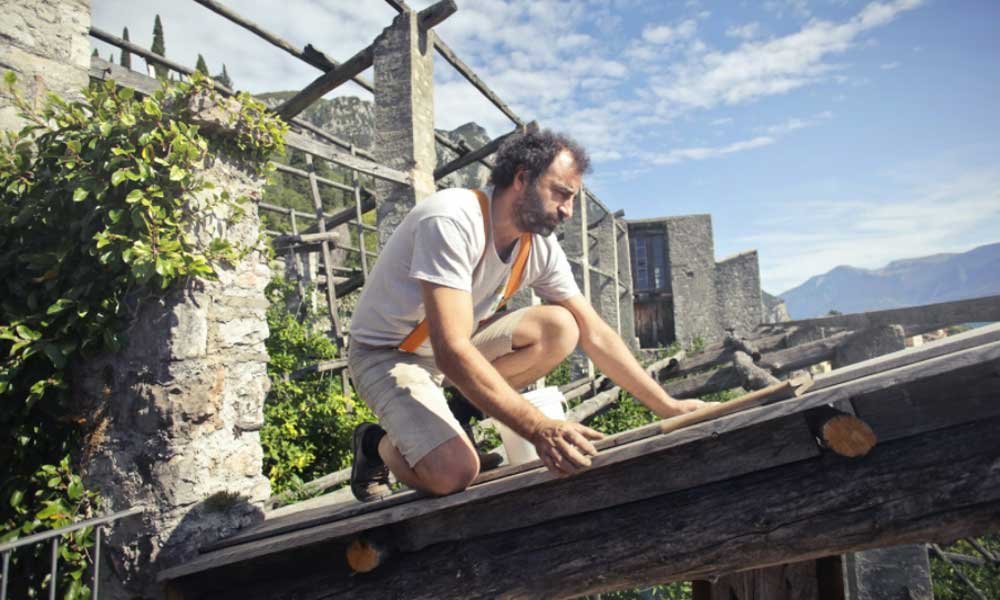Whether you’re putting a new roof on your house, or you just need to repair your current roof, there are a lot of things to keep in mind when you’re trying to find a roofing contractor, from weather conditions to cost. You might be wondering how to hire a reliable roofing contractor who can get the job done right, especially if you’re a first-time homeowner.
Table of Contents
Finding a Roofing Contractor
It’s easy enough to Google “roofing contractor” and start scrolling, but there are so many choices. How do you narrow them all down? In general, a roofing professional should fit the following criteria:
- They should be licensed in your state.
- They should have insurance.
- They should be bonded, which means that there is money set aside for you in case you need to file a claim against the contractor. Think of it as insurance for you.
- They should give you references, a written estimate, and their availability dates.
You can either go with an independent contractor or a company. Both have their advantages and drawbacks. Independent contractors might be more specialized or flexible about doing short-term jobs with a specific budget in mind. Local roofing companies like Davis Roofing Inc will generally have more availability for long-term projects and may even offer free consultations and discounts.
Types of Roofing Work
Roofing work varies from small projects such as replacing broken shingles to large projects such as replacing a roof. Other types of roofing work include:
- Cleaning a roof
- Weatherproofing and sealing
- Shoveling snow and ice
- Safety inspections
- Repairing leaks or other damage
Equipment Used
Roofing contractors generally carry basic tools, such as a drill and drill bit set, hammers, screwdrivers, nail guns, and utility knives to cut plastic or other materials. For cleaning a roof, they’ll likely also carry an air compressor, tarp, and at least one rake or broom. Other equipment used by roofing contractors includes safety equipment like safety harnesses and ladders, measuring equipment such as a level, plumb line, and measuring tape, and basic electronics wiring equipment.
If the roofing contractor ends up needing a tool they don’t have, they might arrange to come back another day or arrange to rent the tool. Rented equipment is generally under warranty, and if you’re going through a roofing company, they’ll probably offer warranties, too.
Frequently Asked Questions
I want to replace my roof. How much will it cost?
The cost of replacing a roof depends on location, the size of the roof, the type of roof you want, and the roofing contractor’s rates. Online tools will give you an estimate if you enter your zip code. In general, costs range from about $4300 to $5700 for a shingled roof on a 1000 foot square-foot home.
My roof is leaking and I can’t get a contractor right away. What should I do?
If your roof is leaking and you can’t get a contractor right away, first make sure the leak is not coming through to the inside of your house. If it is, remove or cover anything that will otherwise get wet. If there is a bulging spot in the ceiling, it means water has collected. Use a screwdriver to poke a hole in this spot, so the water doesn’t sit there and cause further damage. Use buckets or trash bins to contain the water and cover the roof with a tarp.
Lastly, take photos of any damage for your insurance company so they can cover the costs of any damages and repairs, including anything else that got wet due to the leak.
